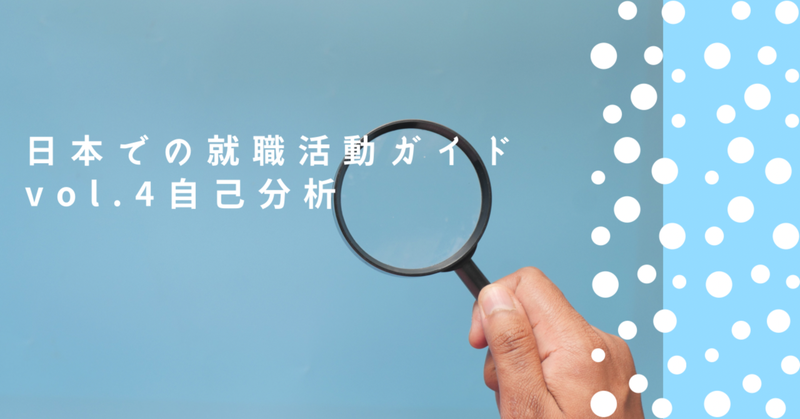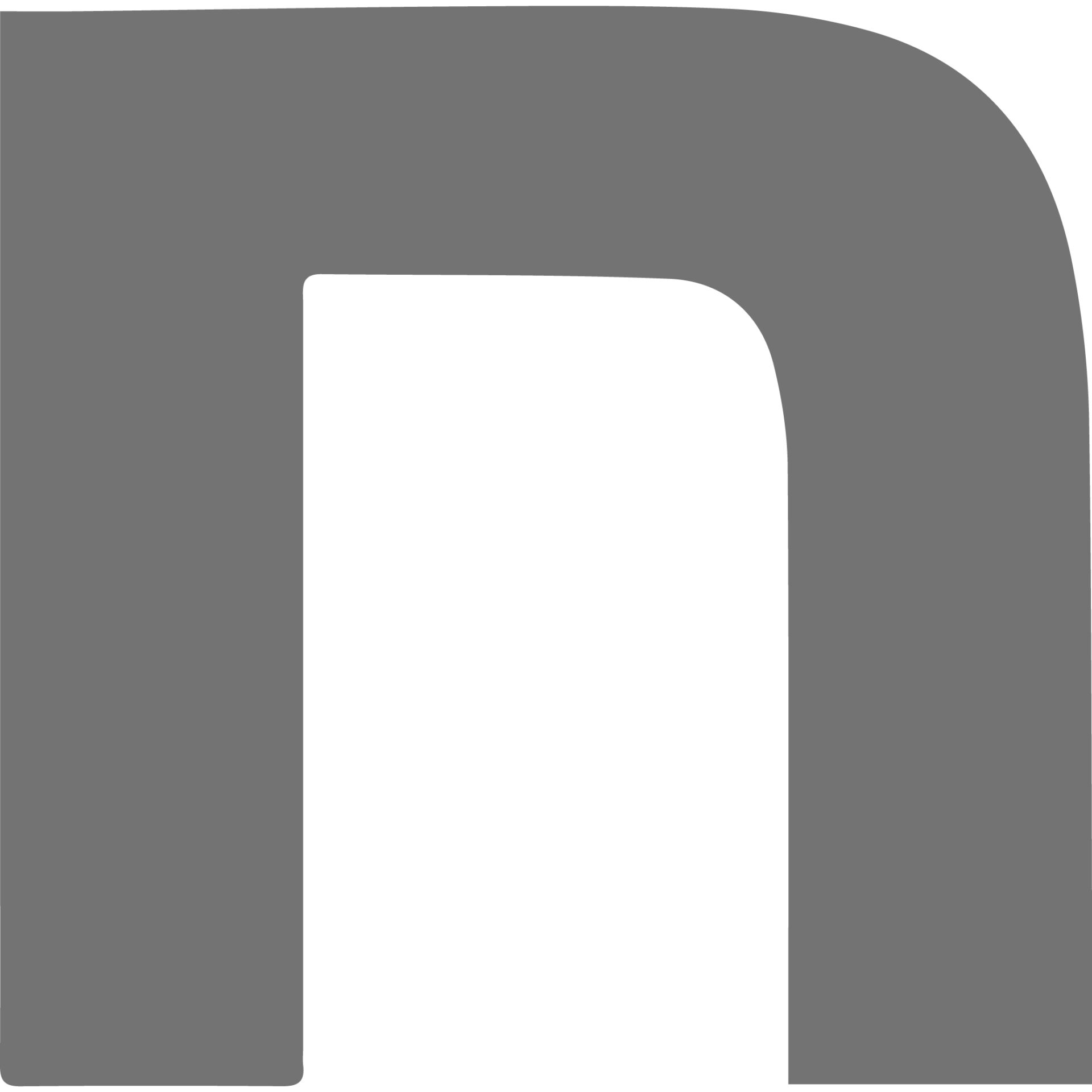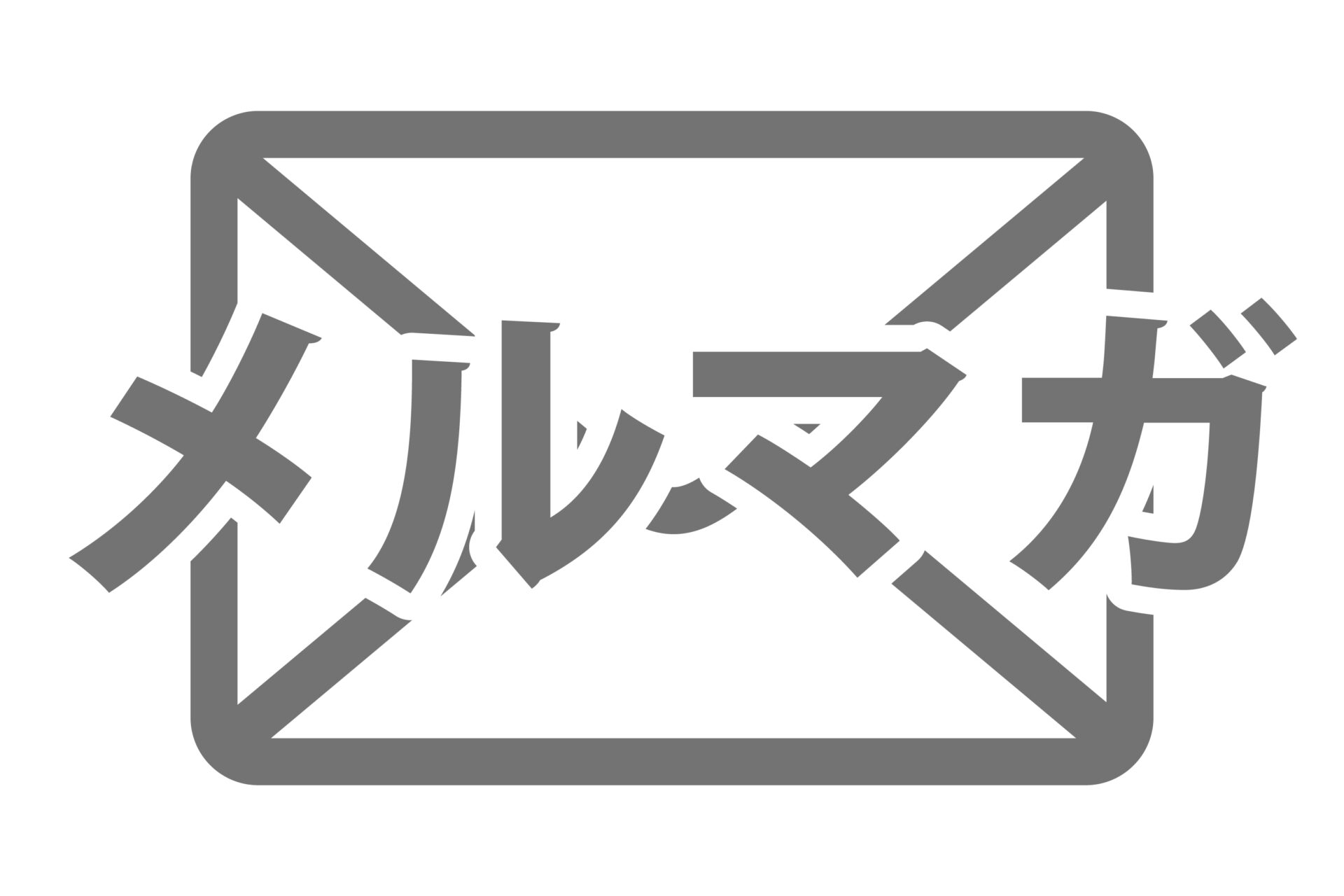Hello everyone!
For your job hunting, there is the preparation that is best done beforehand.
One part of this preparation is self-analysis, and another is job-analysis.
In this post, we summarize how you can better analyze yourself and three different methods by which you can do so. You can also download the method templates below, so please check them out.
◆Why it is important to do self-analysis
Self-analysis may sound complicated – it is about knowing and expressing yourself. To start, you can try sourcing ideas from your everyday life and studies:
For examples:
●I would feel happy if someone described me this way
●I felt upset because this happened
●I worked hard on this matter
●I was able to recover from this failure
●I was praised because of this accomplishment, etc.
To receive an offer from a company, you must convince them that your strengths will become theirs. By showcasing these strengths, you encourage their interest in working with you.
For this reason, you must understand your strengths. Equally as important is understanding your weakness, so you know where you require effort to improve yourself. If you know yourself, you can consistently introduce yourself with confidence.
◆Self-Analysis Methods
A straightforward method to understand yourself more is to reflect chronologically, in the order of Past ~ Present ~ Future. First, outline your experiences and the ups-and-downs, and then consider more deeply about what you would like to do and become in the future.
(1) Life Chart: An Analysis of Past & Present
Let’s make life “visible.” Then, try to fill in the reasons for the ups-and-downs. By doing this, you will highlight the things most important in your life.
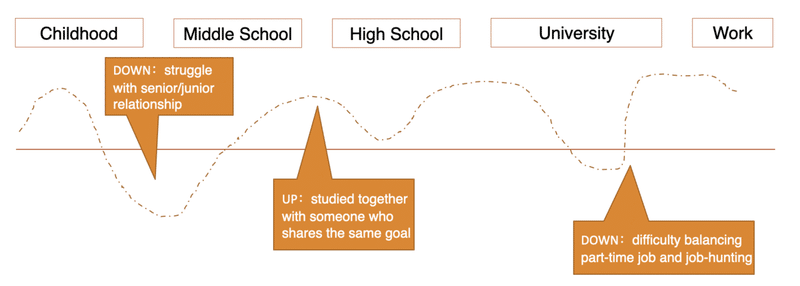
【Merits】
・You can have a holistic view by making a simple graph of past experiences
・It is helpful to construct a consistent description for self PR and your entry sheet
・Create a clear understanding of what you are interested in and not interested in for your job-hunt
(2) From Others’ Perspectives: An Analysis of the Present
How do other people view you? Let’s ask various groups of people (not just family and friends) about your strengths and weaknesses. It is even better if they share reasons why they feel these are your strengths and weaknesses.
This method enables you to identify the gaps between how you view yourself and how others view you, making your reflection more objective. You may also discover strengths that you did not realize – in that case, be confident and promote them in your self-introduction!
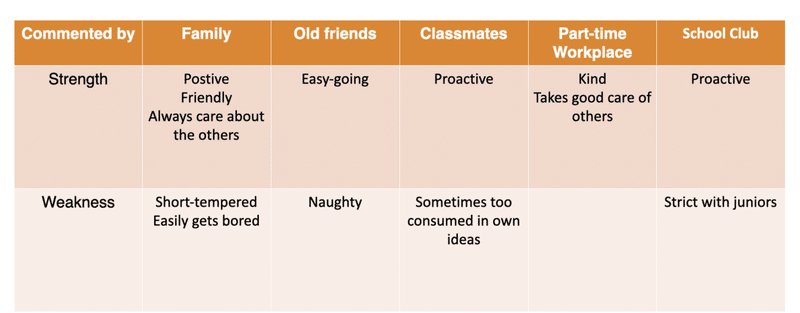
【Merits】
・Compare between “you in your eyes” and “you in others’ eyes.”
・More objectivity when writing your self-introduction and entry sheet
・It is a good reference when unfamiliar with your strengths and weaknesses
(3) Life Career Rainbow: An Analysis of Present ~ Future
Life, including one’s career and environment, is constantly changing. In different life stages, there are also various duties. Can you imagine yourself in five years? What will you do (would you like to do)?
In building the foundation of a career plan, it is crucial to know how you would like to construct your life in a limited time.
In this method, we break time into five years. On the left side are various responsibilities, and you can fill in your image of yourself in the present, in five years, and ten years.
If one year counts as 100%, what would be the percentage of this duty you would have to fulfill? You can also write down more details about what you will be doing and would like to do.
※It is ok not to be completely precise with the details. For example, if you would like to “get promoted by the age of 28 and manage key accounts”, it is OK to put them under the 29-year-old column.
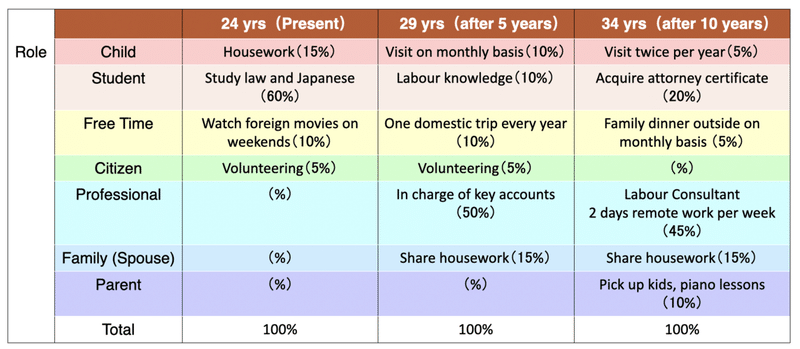
There are various ways to break down the responsibilities in the first column. Here are the seven major ones:

(出典:厚生労働省 平成 29 年度労働者等のキャリア形成における課題に応じたキャリアコンサルティング技法の開発に関する調査・研究事業)
【Merits】
・Provides a detailed image of the future, including professional work and personal life
・Easy to visualize areas of focus using percentages
・Helps to identify the work style/lifestyle that suits you the most
・This life image can also be the foundation for your job hunting
◆Practice Time: Downloads
LIP has prepared three formats for self-analysis; please feel free to download and give it a try.
◆How To Describe Yourself
Once you have done your self-analysis, let’s think about expressing yourself more confidently and clearly. In applications and interviews, it is key to make sure you can explain yourself well in your own words.
Knowing yourself and knowing the appropriate language are equally important. Let’s find more options to express yourself better!
Strengths and weaknesses are two sides of the same coin
In this chart are some examples of how to communicate about weakness and challenges:
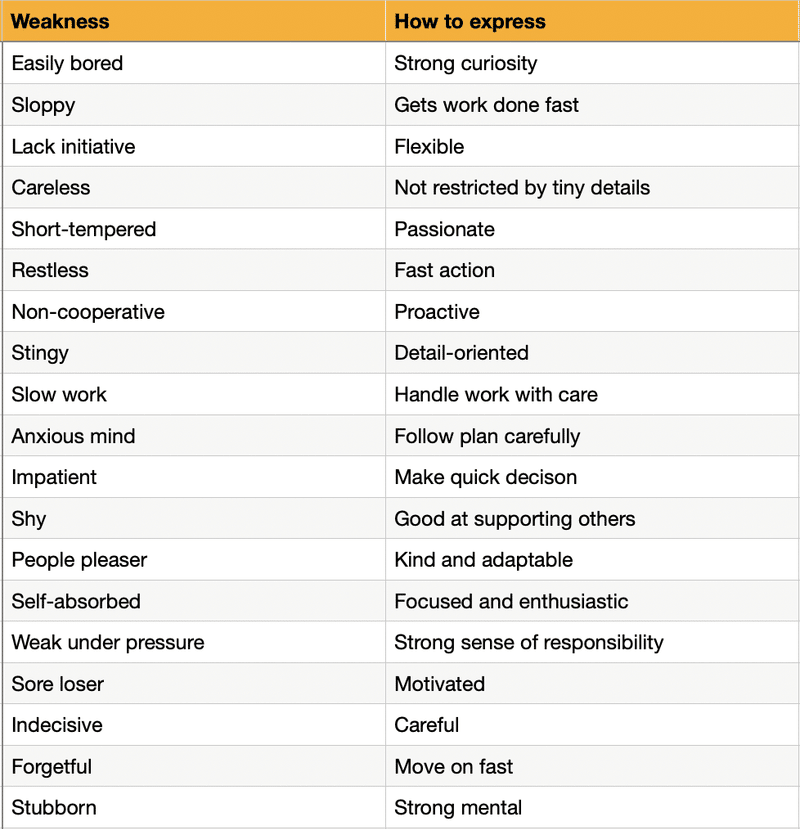
Now you have a better understanding of “strengths & weaknesses” and “preferences & aversions.” Next time, we will discuss more how to analyze different industries, companies, and professions.
—————————————————————————–
In this post, we summarized how you could analyze and express yourself better in different ways. Finding your strength is helpful not only in the job-hunting stage but also long term career progression.
We have also prepared posts that help international students prepare for the standard job-hunting process in Japan; please check them out!
Author: Mayu Miyamoto
Translation: Jiujiu Dai

